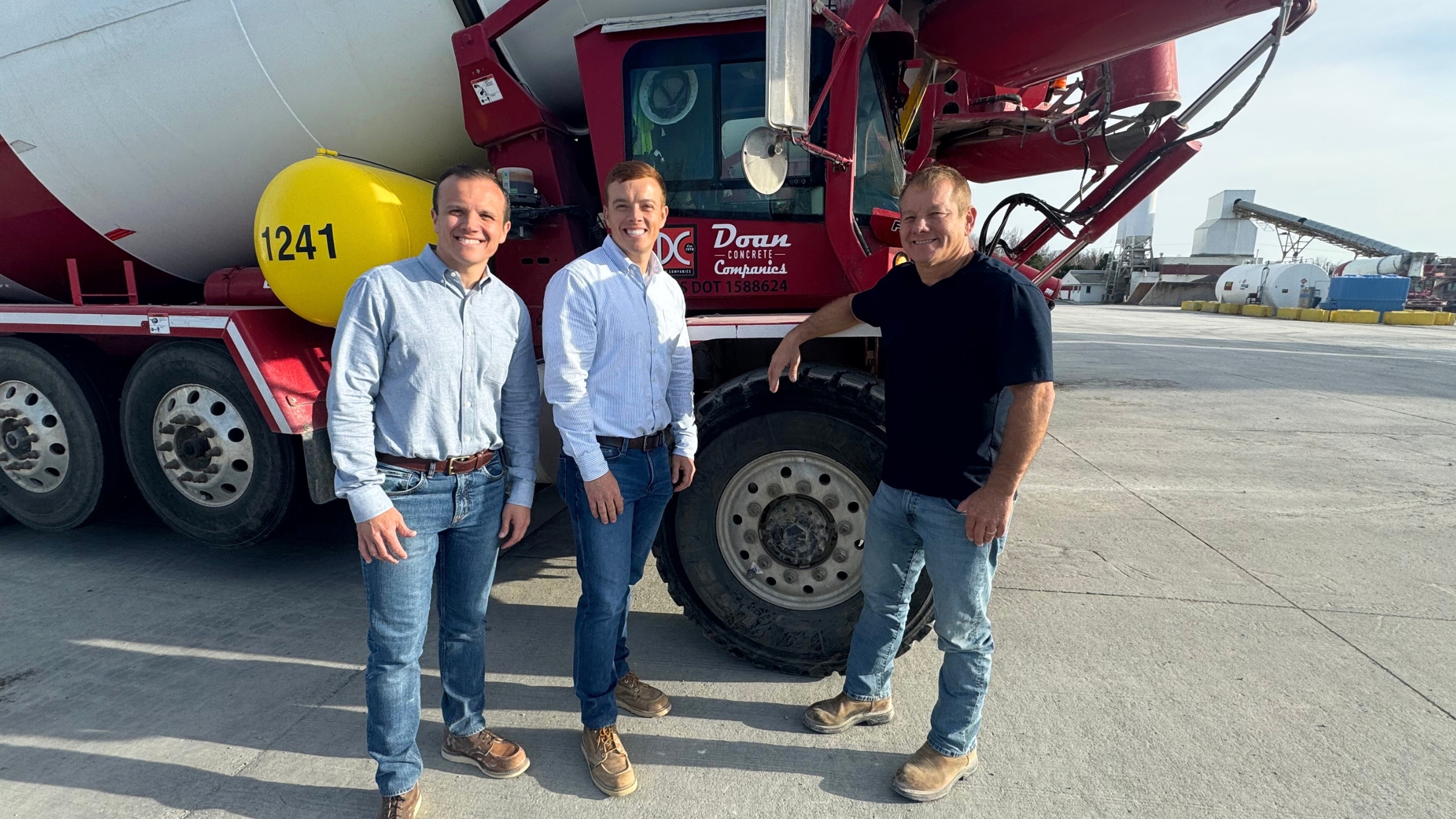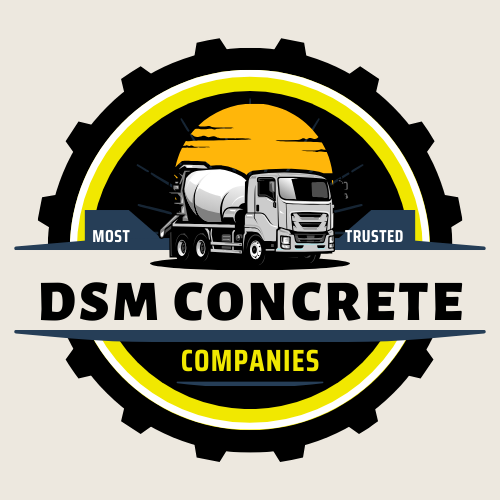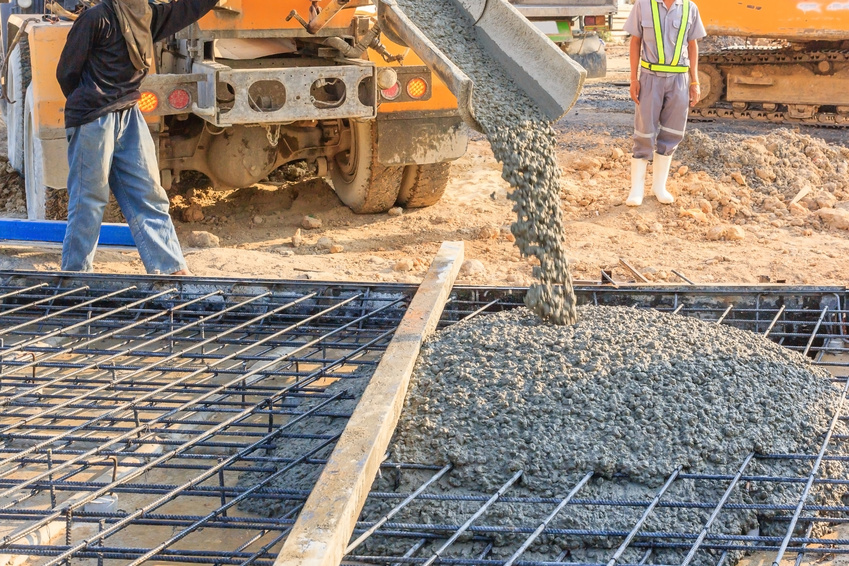The Advantages of Utilizing Concrete Services for Resilient Structures
Concrete services provide an array of benefits for building long lasting structures. This material is renowned for its outstanding strength and long life. Its resistance to environmental elements makes it a practical selection for numerous climates. Additionally, concrete is often extra economical in the lengthy run. As engineers and building contractors significantly discover ingenious applications, the capacity of concrete in layout ends up being also a lot more interesting. The discussion of these benefits discloses engaging understandings right into modern building techniques.

Outstanding Toughness and Toughness
Concrete is renowned for its remarkable strength and longevity, making it a recommended material in building and construction. Concrete Contractors Pearland TX. Its capability to hold up against hefty lots and withstand deformation under stress is unmatched, which is why it is usually utilized for fundamental components, supporting structures, and skyscraper structures. The make-up of concrete, which includes cement, water, and accumulations, allows it to attain high compressive stamina, often surpassing that of standard building materials like wood or steel. This toughness ensures structural stability and longevity, thus lowering maintenance expenses in time. In addition, concrete's toughness appears in its capacity to endure various tensions without catching use and tear, making it suitable for varied applications, from bridges to domestic homes. Overall, the durable characteristics of concrete add to its track record as a reliable option for building enduring frameworks that stand the examination of time
Resistance to Environmental Elements
Although numerous building products are prone to ecological damage, concrete displays impressive resistance to numerous aspects such as wetness, temperature fluctuations, and chemical direct exposure. Its fundamental properties make it specifically appropriate for diverse applications, from residential buildings to large framework projects. Concrete's reduced leaks in the structure limitations water absorption, decreasing the danger of damages from freeze-thaw cycles and stopping mold and mildew development. In addition, it maintains architectural honesty when subjected to extreme temperature levels, making it optimal for regions with rough environments. Concrete additionally stands durable against chemical assaults, including sulfates and acids, which can degrade various other materials. This resistance is even more boosted by the usage of specialized ingredients and treatments throughout the mixing process. Generally, concrete's sturdiness when faced with environmental challenges guarantees longevity and dependability, making it a favored choice for designers and building contractors intending to build withstanding structures.
Cost-Effectiveness Over Time
Cost-effectiveness in concrete solutions materializes as a long-term financial investment that considerably profits frameworks. This approach not only decreases maintenance expenditures yet likewise enhances power efficiency, leading to considerable cost savings with time. Comprehending these elements is crucial for reviewing the general worth of resilient concrete constructions.
Long-Term Investment Advantages
Buying long lasting structures returns substantial long-lasting benefits that expand beyond preliminary expenditures. Concrete services, recognized for their robustness, add to a structure's longevity, eventually lowering the complete price of ownership. By utilizing top quality products and professional workmanship, owners can anticipate less repairs and substitutes in time. This dependability converts into a steady property value, making concrete buildings a wise financial selection in the realty market. In addition, structures constructed with concrete are typically a lot more energy-efficient, more improving their cost-effectiveness. Consequently, the first financial investment in concrete solutions can bring about substantial cost savings and better returns throughout the years, verifying the value of picking long lasting alternatives for long-lasting construction jobs.
Minimized Maintenance Expenses
The longevity of concrete frameworks not just improves asset value but also substantially reduces maintenance costs over time. Unlike products that weaken quickly, concrete shows impressive durability against different ecological factors, such as moisture, temperature variations, and insects. This intrinsic longevity equates to less repair services and replacements, thus lessening long-lasting prices. In addition, the low absorption rate of concrete limits concerns connected to mold and mildew and mildew, which can demand costly removal efforts. Regular maintenance is commonly minimized to simple cleansing as opposed to considerable repair services, better adding to cost-effectiveness. Therefore, homeowner buying concrete solutions can expect a significant decrease in maintenance spending plans, making concrete an economically sound selection for sturdy structures.
Power Performance Financial Savings
As energy performance comes to be significantly vital in building and construction, concrete frameworks stick out for their capability to improve long-term savings on energy costs. The thermal mass of concrete permits structures to preserve secure indoor temperatures, minimizing the requirement for heating and cooling down systems. This building minimizes energy consumption and translates to reduce power prices with time. Additionally, concrete's sturdiness adds to less replacements and repair services, likewise enhancing cost-effectiveness. Additionally, modern concrete technologies, such as shielded concrete types and energy-efficient blends, improve insulation and power efficiency, leading to considerable savings. Consequently, spending in concrete solutions not just benefits the environment via minimized energy usage but also provides significant financial advantages for home owners in the future.
Flexibility in Style and Application
Concrete's versatility in style and application permits a vast array of adjustable visual choices, making it appropriate for various architectural designs (Concrete Pasadena TX). Its capacity to adjust to diverse structural applications improves its performance in both industrial and household jobs. This adaptability settings concrete as a recommended product in modern-day building
Adjustable Visual Options

Varied Structural Applications
Exploring the varied architectural applications of concrete discloses its remarkable convenience in design and performance. Concrete is utilized in different kinds, consisting of structures, wall surfaces, sidewalks, and attractive elements, enabling it to adapt to many building designs. Its intrinsic strength and sturdiness make it ideal for skyscrapers, bridges, and infrastructure tasks. Concrete can be formed into intricate shapes, accommodating ingenious layouts while preserving architectural stability. This versatility additionally encompasses household applications, such as patio areas, driveways, and maintaining wall surfaces. Additionally, developments in technology have actually led to the advancement of specialized concrete mixtures, enhancing efficiency in certain atmospheres. This considerable applicability emphasizes concrete's essential function in modern building and construction, satisfying both useful and aesthetic needs effectively.
Low Maintenance Demands
Lots of homeowner value the reduced upkeep requirements connected with concrete structures. Unlike materials such as timber or steel, concrete is naturally resistant to pests, rot, and deterioration. This resilience substantially minimizes the regularity and price of repairs with time. Cracks and surface area wear can be easily resolved with marginal initiative, usually needing just regular sealing or resurfacing.Additionally, concrete frameworks do not call for normal paint or staining, more adding to their reduced upkeep. This particular is specifically advantageous for business residential or commercial properties, where maintenance costs can quickly accumulate.Furthermore, concrete is much less prone to weather-related damages, making sure that frameworks continue to be intact regardless of ecological conditions. Therefore, residential property proprietors can delight in the lasting benefits of concrete, consisting of minimized labor and upkeep prices, permitting them to allot sources to various other crucial locations of their buildings. Inevitably, the low maintenance needs of concrete make it an eye-catching selection for constructing resilient structures.
Eco-Friendly Structure Material
As the demand for sustainable construction practices expands, concrete becomes an environment-friendly structure product that provides numerous ecological benefits. Its production can integrate recycled materials, such as commercial byproducts and waste accumulations, which decreases the need for virgin resources and minimizes garbage dump waste. In addition, concrete has the capability to regulate temperature, his response thereby boosting energy performance in structures. This thermal mass effect can lead to reduced power usage for cooling and heating, more decreasing a structure's carbon footprint.Moreover, concrete is lasting and sturdy, which suggests structures require fewer fixings and remodellings in time, resulting in much less source usage in general. Advancements in technology have additionally resulted in the growth of low-carbon and eco-friendly concrete solutions that lower greenhouse gas exhausts during production. By prioritizing concrete in building and construction jobs, builders can add to a more sustainable future while making sure the durability and strength of structures.
Improved Building Worth and Allure
A sound concrete framework significantly improves building value and appeal, usually making it extra eye-catching to possible buyers or lessees. Concrete's durability and reduced maintenance needs add substantially to long-term investment returns. Qualities featuring top quality concrete buildings often tend to attract higher deals due to their perceived security and longevity. In addition, cosmetically pleasing concrete layouts, such as stamped or tinted finishes, can boost curb charm, creating a favorable very first impression.Moreover, concrete frameworks typically meet modern building standards, which can be a marketing factor for eco mindful customers. The energy performance connected with well-insulated concrete likewise interest buyers looking to lower energy prices. Overall, investing in concrete services not only reinforces the structural honesty of a residential property but also enhances its marketability, resulting in raised residential property worth and an affordable edge in the realty market.
Frequently Asked Concerns
For how long Does It Take to Cure Concrete Appropriately?
The healing process of concrete commonly takes regarding 28 days to achieve ideal strength, although initial setup takes place within hours. Factors like temperature level and humidity can affect the treating duration and efficiency considerably.
What Kinds Of Concrete Services Are Available?
Different types of concrete services exist, including pouring, forming, ending up, resurfacing, and attractive concrete. Concrete Companies Near Me. Companies might additionally use repair service, reconstruction, and installation of concrete frameworks, accommodating both household and commercial requirements
Can Concrete Be Recycled After Its Use?
Concrete can without a doubt be recycled after its use. When processed, it can be repurposed for brand-new building and construction tasks, minimizing waste and advertising sustainability within the construction sector while preserving architectural integrity in brand-new applications.
What Are the Finest Practices for Pouring Concrete?
When pouring concrete, ideal techniques consist of appropriate site preparation, guaranteeing suitable temperature conditions, utilizing appropriate blending proportions, maintaining consistent putting techniques, and allowing adequate curing time to enhance stamina and resilience of the ended up framework.
Are There Any Type Of Alternatives to Conventional Concrete?
